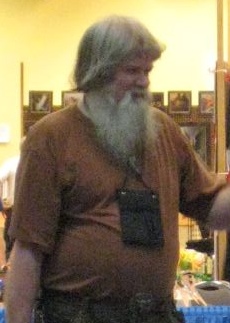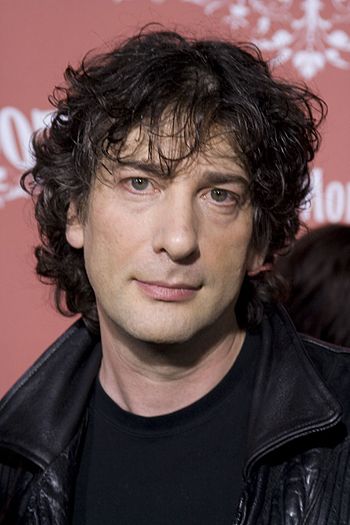Sorry for the long time with nothing but social commentary, but I’ve just not had a lot of new things to talk about.
Well, not today.
My wife, who has infinitely more patience for internet discussion forums than I (mathematicians, please feel free to correct me, but infinity is how many more times than less than nothing is something, right?), was noticing how a lot of aspiring authors, especially of an age equal to or less than our own (she was born 1980 & I 1981) seem to think there’s a secret formula to a) turn whatever idea they have into a novel & b) for it to sell.
Well, I’m here to tell you absolutely free that yes such a formula does exist!! [Try to imagine that sounds a bit like the twin sister of that bearded guy on all the infomercials]
A) Sit your arse down (you may stand if desired, but it’s liable to get uncomfortable and awkward), put letters together until they form words, put words and punctuation together until they form sentences, put the sentences together until they make paragraphs, those you’ll group into chapters, and finally you gather you chapters into a novel (advanced authors can group novels into series).
B) Put it out there, and don’t give up.
That’s all you can do.
Yes, if you want to write something as, largely, ephemeral as a Harlequin Romance there’re formulae to follow and it will turn you out a cookie-cutter story quickly and you can usually get Harlequin Press to buy it. Not knocking it, for one thing some really phenomenal authors have written that kind of thing, and some if the greatest Western & SciFi stories were that. But those authors took the formula in hand and, pardon the expression, made it their little bitch; it followed them, rather than the other way around. It set the parameters of the story, but they still has a story to tell.
There’s no special trick that will guarantee you’ll finish the thing, except not giving up.
Outlines? No, I couldn’t even outline my finished work if my life depended upon it, let alone something I haven’t written yet; I don’t really have the faintest clue how. You can try it, if you like, some authors dig it and others hate it, and still others (such as myself) are mystified and intimidated by it.
Character questionnaires? They’re fun, the better of them can possibly be a handy reference tool, but remember that you probably couldn’t fill one out completely for yourself and six friends and, even if you can, you probably won’t have an accurate picture of any of you … so they shouldn’t be your alpha and omega of characterisation.
It doesn’t matter if you sit down with Pantera at decibel levels that would shame Grand Funk and a Big Gulp full of Jamesons, lock yourself in a sound proof room with incense, try to use a laptop while sitting zazen, or spend the day on the London underground with a BIC writing on Kleenex. It’s just got to work for you. You probably shouldn’t ritualise it over much or you’ll find yourself so caught up in ritual that you lose track of ideas; really, that spark of inspiration isn’t going to wait while you to fire up the Yanni CD, brew that special herbal tea, paint your toenails, take a bath, and chain the family and neighbours in your basement (yes, I’m sort of making fun of a few people from a thread on NaNoWriMo).
There’s no secret to making it a great story, either. Doesn’t matter if you wrote it in one draft or fifty (though excess drafts can lead to a too sterile narrative, but excess is a relative quantity), it doesn’t matter if you go over it with a fine toothed thesaurus or strip out every scrap of descriptive language, axe murder every adverb or add fifteen to every sentence. None of those tricks you find touted are a magic solution. Some help in certain genres, some work for certain types of writing (non-fiction, scripts, etc.) because, contrary to a new popular attitude, writing is not the same across all things. What is necessary to ensure accurate and logical textbooks is useless to a novel, what helps keep a short story streamlined can ruin a script, and so on. All that can make a story great is a mix of perception from the reader, talent of the writer (yes, there’s such a thing as talent, and all the piano lessons & practice in the world will no more turn you into Bach than all the writing exercises in history will make you Rudyard Kipling), and some stories are more liable to resonate with people than others (according to someone, Pat Rothfuss I think, that’s going to ultimately be the human heart in conflict with itself).
As for selling it? Well, you’ll never sell what never leaves your hands (literally and metaphorically). Whether you self-publish or traditionally do so, you have to try.
There’re things that help.
First off, yes, having written the current popular formula … assuming you haven’t finished in a saturated market that is beginning to reach critical mass and be transitioning to something else. If you like the style of story, fine. But I suggest you not write it just because it’s what’s selling right now … not unless you’re an experienced writer who can knock out a clean manuscript to shop to an agent or to post to iBooks in only a month or three, because you’re unlikely to finish while it’s still In.
Secondly, don’t get discouraged. Remember, it took a long time for the Beatles and J K Rowling to get a contract. They both could wallpaper a room with rejections. If you’re self-publishing … remember that, by and large, people don’t read. Even NYTimes Bestsellers might only have got a thousand sales, and they probably had the help of ads that cost a couple thousand dollars each.
Thirdly, don’t give up. Taking down a story that isn’t selling isn’t going to sell it any better. If it ain’t costing you to offer it, don’t remove it. If you’re traditionally published … try talking to your agent to see if they can help you get some better publicity or something.
Finally, edit. Self-published especially, since you’re not going to sell very well if you’ve a book out that looks like it was written by a schizophrenic toddler with Tourette syndrome, but even if you plan to submit it to an agent/publisher it’s not going to impress them to look at a garbled parody of English (or French, Portuguese, or whatever you wrote it in); they’re buying your writing, not your glorious idea … besides, even if they love the idea, they’ve got to be able to find it inside all that text, and they can’t do that if it’s unintelligible.
One trick that does really help, though: read. Doesn’t have to be the genre you’re writing in (might even help not to be, but that depends on you), but read. The kind of writing does matter, it does no good to read novels to learn to be a poet, but beyond that just read for the simple pleasure of it. Don’t pull the story apart like some literature class assignment looking for themes and plots and cheeseburgers and … buggered if I know, I was never lying when I said I paid all but no attention whatsoever in my literature classes … just read. By doing so you’ll, the same way a child learns to speak by listening to people around her talking, you’ll start to get an idea how to tell a story.
Really, if the only thing you’ve ever read is a book about how to write (or books) it’ll show. There’ll be something unnatural about it to those who can’t spot the signs, and the rest of us can probably damned near say which writing manuals you used.
― Stephen King
Writing, like life, can’t be hurried and still maintain quality. Kraft Easy Mac might only take a minute in the microwave, but is it really anywhere near as good as the stuff your nana made from scratch with three kinds of real artisan cheeses and homemade pasta? Probably not, unless nana was real shite in the kitchen. And, unlike the Easy Mac which, news flash younger readers, used to take something like five minutes, there’s nothing much that can speed up writing except, maybe, spending time you could otherwise be writing doing exercises in Mavis Beacon Teaches Typing. So, if you never want to be better than mid-list (if that high) forget about shortcuts, forget about tricks, forget about anything except what it takes to keep your story moving, your fingers on pen/keyboard, your characters from wandering off to play strip poker, and so that you can remember that Bridgette has curling green hair now because of that spell that backfired in the third chapter.
And seriously, folks, who besides Dean Wesley Smith actually ever wants to be known for churning out literary Easy Mac?! (don’t ask).
Related articles
- Penguin Classics Celebrates 80th (adweek.com)
- Internationally acclaimed historical novelist and writer for children, Rosemary Sutcliff, could not read when nine years old (rosemarysutcliff.com)
- How to Manage Your NaNoWriMo Editing? Tips for Novel Writers (shannonathompson.com)
- A Quick Note on NaNoWriMo (whatever.scalzi.com)
- Not every story needs to be a novel (sblog.universal-nexus.com)









